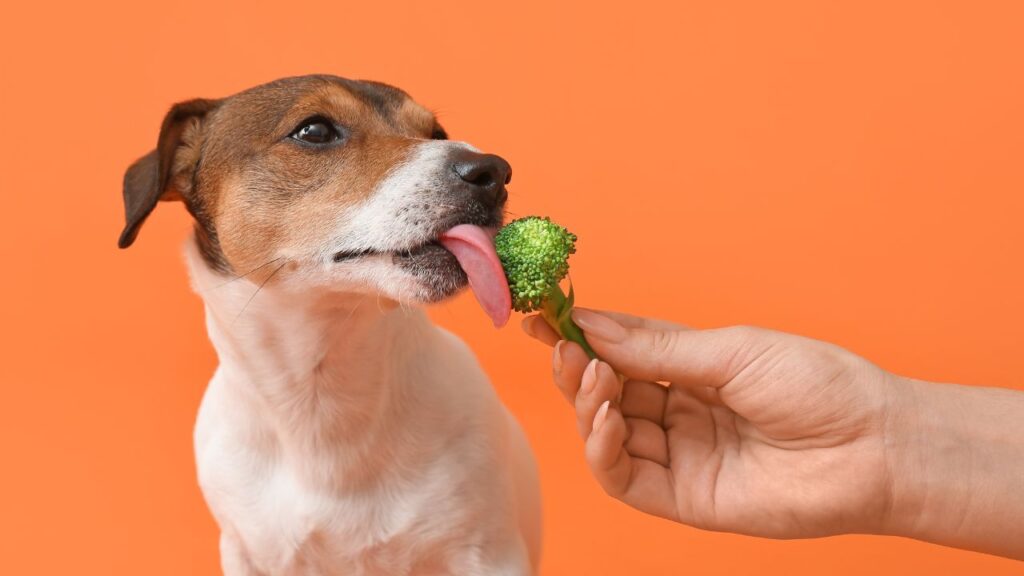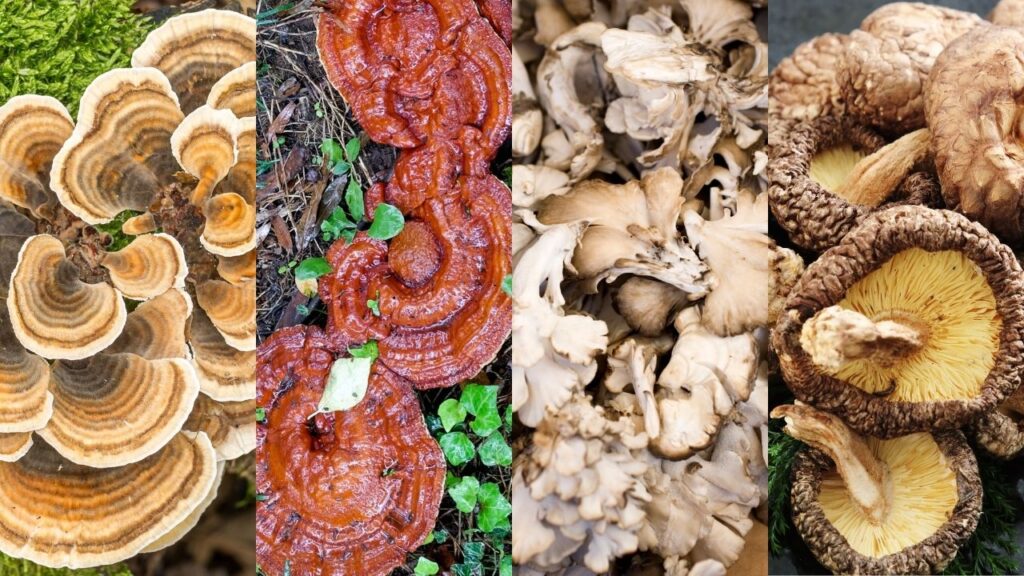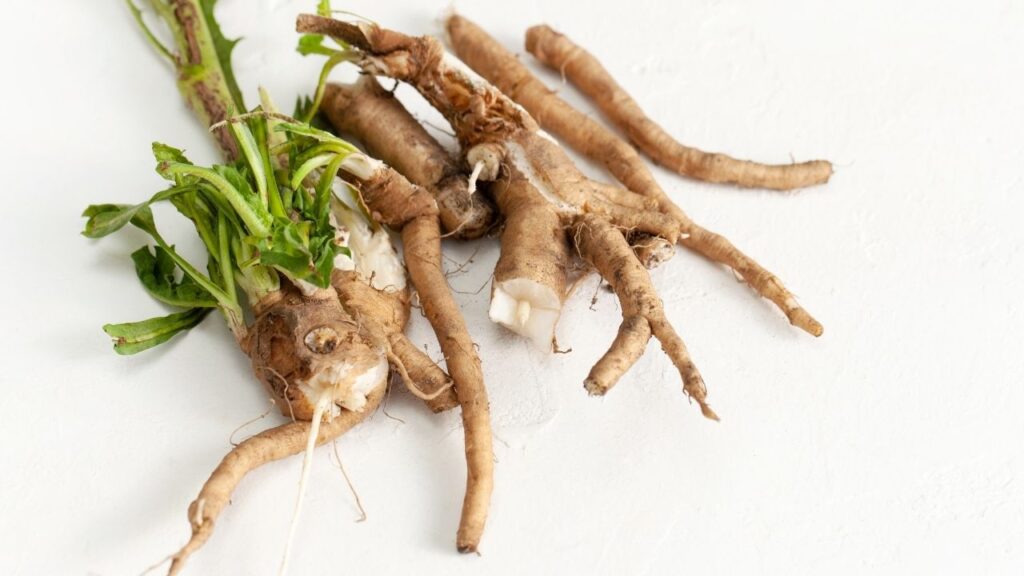Ginger is a diverse supplement that has many therapeutic properties from anti-nausea to helping with cancer prevention and treatment.
Key Takeaways
- It is safe for dogs to eat ginger.
- Ginger can settle a dog’s stomach.
- Ginger root for dogs does not usually have side effects, but any supplement taken by mouth can cause vomiting or diarrhea in sensitive individuals.
- You can add ginger to your dog’s food as fresh ginger, ginger capsules, or ginger extract.
Ginger for Dogs: Good Idea, or Great Idea?
Ginger is commonly available, delicious, and easy to give to dogs. Veterinarians recommend ginger for dogs for many reasons, as you’ll see below, with a few notable exceptions.
Ginger Root
Zingiber officinale, commonly known as ginger, is native to South East Asia. It is grown in many parts of the world including Africa, China, India, and Jamacia. India is the largest commercial producer.
The part of the ginger root known as the rhizome is what is consumed. It can be prepared fresh, dehydrated, baked, fried, as a liquid extract, or as a powder.
Ginger root can be found fresh or jarred in most grocery stores. There are many brands of supplements labeled for human consumption, and it is also available in many forms as a veterinary supplement including liquid and capsules.
Is Ginger Good for Dogs?
Studies have shown that ginger has many beneficial properties including anti-nausea,1 anti-inflammatory, and antioxidant properties.2
Ginger can inhibit proinflammatory cytokines, which are proteins that help control activity of the immune system and blood cells.2 Ginger is suggested to be a helpful anti-inflammatory for the stomach, esophagus, and liver.7
Ginger has also been suggested to be protective against liver toxicity.8
Ginger for Dogs with Cancer
Ginger has over sixty different active compounds, with some having anti-tumor activities.3
Ginger is suggested to stop cancer cell proliferation, meaning it doesn’t allow cancer cells to multiply.3 Ginger helps by interfering with angiogenesis, the creation of new blood vessels that feed the tumor.3
Ginger has been shown to be beneficial during cancer treatment by decreasing multidrug resistance.3 Ginger has also been shown to influence drug resistant leukemia, helping to make chemotherapy more effective.4
Another study evaluating doxorubicin (a chemotherapeutic) showed that ginger increased the effects of this chemotherapy and made the cancer cells more sensitive to it.5
One study showed that starting ginger three days before chemotherapy was helpful in increasing antioxidant levels.6
Common Uses of Ginger for Dogs
Ginger has many properties including:1,2
- anti-inflammatory
- antibacterial
- anti-nausea
- antiemetic (stops vomiting)
- antispasmodic
Ginger has been shown to be beneficial for many human cancers including breast, prostate, ovarian, colon, lung, stomach, liver, melanoma, and others.3
Ginger for Dogs Upset Stomach
Ginger can be helpful to patients undergoing chemotherapy as studies have shown that it can reduce nausea and vomiting related to chemotherapy.1
It decreases gas and bloating and helps with spasms of the small intestine by relaxing the smooth muscles.6 It may also decrease resistance to chemotherapy.4
Safety and Side Effects
Ginger supplementation is currently used widely in human medicine in combination with chemotherapy and radiation therapy without issues. It is well-tolerated by dogs and quite safe.
Due to potential platelet interaction, it is recommended to stop ginger prior to surgery and use with caution if your dog is taking anti-coagulants or non-steroidal anti-inflammatory drugs.11 There is a possibility that ginger could interact with these drugs and cause abnormal bleeding.
As long as it is taken in normal doses, ginger is safe to be taken by diabetic dogs.12
Using Ginger with Other Treatments
Ginger is commonly used with chemotherapy3 and there have been case reports of its use combined with cisplatin13 and doxorubicin.5
One case study found an increase in chemotherapy effects in people that combined ginger and crizotinib, a prescription kinase inhibitor chemotherapeutic.9
Ginger is also safe to take while undergoing radiation. Ginger has radiation protective properties both as an anti-inflammatory and as an antioxidant.10
When to Not Use
The most concerning potential drug interaction is ginger’s potential to increase the risk of bleeding when given with anti-coagulant medications. As a precaution, ginger should be stopped prior to surgeries or procedures that may cause bleeding.
Ginger should be used with caution in combination with anticoagulant herbal supplements such as Dong Qui, Dan Shen, Gingko, and ginseng as well.
Ginger may cause increased bile secretion that can affect patients who are prone to gallstones.14
Skin contact with ginger can cause contact dermatitis (irritation or inflammation of the skin). Ginger allergies are rare but can happen. Watch for any skin irritation or redness after handling and wash hands before touching your eyes.
How to Prepare Ginger for Dogs
Ginger is available as fresh root, capsule, or extract.
Absorption of ginger can vary depending on the product. Absorption is enhanced in certain formulations such as liposomal formulas or those with solutions containing nanoparticles or micelles.3
The typical dosing for dried ginger is 15-200 milligrams per kilogram of body weight per day. This is usually divided into two or three doses.16
What If I Miss a Dose?
There are no specific consequences if a dose is missed. The next dosage can be given anytime.
Storage and Handling
Fresh ginger should be peeled before use. An easy way to peel the outside of the ginger is to use a spoon edge to scrape the peel off. Fresh ginger can be stored in the crisper drawer in an airtight bag or green bag. Keep the peel on it until use. You can keep it out of the refrigerator at room temperature if you are planning to use it within a week.
You can freeze ginger for up to five months. It can be peeled and grated when it is still frozen.
Follow label instructions for usage and storage, as different products may have different requirements. Extracts are generally left at room temperature if they have preservatives or in the refrigerator if they do not contain preservatives.
Capsules and powders are generally stored in a cool dry place but check instructions on each specific product.
Our Take on Ginger for Dogs
It is worth having a conversation with your veterinarian to see if ginger would be helpful for your dog. It is a powerful supplement with many benefits and little risk.
- Sharma SS, Kochupillai V, Gupta SK, Seth SD, Gupta YK. Antiemetic efficacy of ginger (Zingiber officinale) against cisplatin-induced emesis in dogs. J Ethnopharmacol. 1997;57(2):93-96. doi:10.1016/s0378-8741(97)00054-8
- Mashhadi NS, Ghiasvand R, Askari G, Hariri M, Darvishi L, Mofid MR. Anti-oxidative and anti-inflammatory effects of ginger in health and physical activity: review of current evidence. Int J Prev Med. 2013;4(Suppl 1):S36-S42.
- Zadorozhna M, Mangieri D. Mechanisms of Chemopreventive and Therapeutic Proprieties of Ginger Extracts in Cancer. Int J Mol Sci. 2021;22(12):6599. Published 2021 Jun 20. doi:10.3390/ijms22126599
- Rahimi Babasheikhali S, Rahgozar S, Mohammadi M. Ginger extract has anti-leukemia and anti-drug resistant effects on malignant cells. J Cancer Res Clin Oncol. 2019;145(8):1987-1998. doi:10.1007/s00432-019-02949-5
- Angelini A, Conti P, Ciofani G, Cuccurullo F, Di Ilio C. Modulation of multidrug resistance P-glycoprotein activity by antiemetic compounds in human doxorubicin-resistant sarcoma cells (MES-SA/Dx-5): implications on cancer therapy. J Biol Regul Homeost Agents. 2013;27(4):1029-1037.
- Danwilai K, Konmun J, Sripanidkulchai B, Subongkot S. Antioxidant activity of ginger extract as a daily supplement in cancer patients receiving adjuvant chemotherapy: a pilot study. Cancer Manag Res. 2017;9:11-18. Published 2017 Jan 31. doi:10.2147/CMAR.S124016
- Dugasani S, Pichika MR, Nadarajah VD, Balijepalli MK, Tandra S, Korlakunta JN. Comparative antioxidant and anti-inflammatory effects of [6]-gingerol, [8]-gingerol, [10]-gingerol and [6]-shogaol. J Ethnopharmacol. 2010;127(2):515-520. doi:10.1016/j.jep.2009.10.004
- Mallikarjuna K, Sahitya Chetan P, Sathyavelu Reddy K, Rajendra W. Ethanol toxicity: rehabilitation of hepatic antioxidant defense system with dietary ginger. Fitoterapia. 2008;79(3):174-178. doi:10.1016/j.fitote.2007.11.007
- Revol B, Gautier-Veyret E, Arrivé C, et al. Pharmacokinetic herb-drug interaction between ginger and crizotinib. Br J Clin Pharmacol. 2020;86(9):1892-1893. doi:10.1111/bcp.13862
- Saberi H, Keshavarzi B, Shirpoor A, Gharalari FH, Rasmi Y. Rescue effects of ginger extract on dose dependent radiation-induced histological and biochemical changes in the kidneys of male Wistar rats. Biomed Pharmacother. 2017;94:569-576. doi:10.1016/j.biopha.2017.07.128
- Jiang X, Williams KM, Liauw WS, et al. Effect of ginkgo and ginger on the pharmacokinetics and pharmacodynamics of warfarin in healthy subjects. Br J Clin Pharmacol. 2005;59(4):425-432. doi:10.1111/j.1365-2125.2005.02322.x
- Azimi P, Ghiasvand R, Feizi A, Hariri M, Abbasi B. Effects of Cinnamon, Cardamom, Saffron, and Ginger Consumption on Markers of Glycemic Control, Lipid Profile, Oxidative Stress, and Inflammation in Type 2 Diabetes Patients. Rev Diabet Stud. 2014;11(3-4):258-266. doi:10.1900/RDS.2014.11.258
- Bossi P, Cortinovis D, Fatigoni S, et al. A randomized, double-blind, placebo-controlled, multicenter study of a ginger extract in the management of chemotherapy-induced nausea and vomiting (CINV) in patients receiving high-dose cisplatin. Ann Oncol. 2017;28(10):2547-2551. doi:10.1093/annonc/mdx315
- Yamahara J, Miki K, Chisaka T, et al. Cholagogic effect of ginger and its active constituents. J Ethnopharmacol. 1985;13(2):217-225. doi:10.1016/0378-8741(85)90009-1
- Asami A, Shimada T, Mizuhara Y, et al. Pharmacokinetics of [6]-shogaol, a pungent ingredient of Zingiber officinale Roscoe (Part I). J Nat Med. 2010;64(3):281-287. doi:10.1007/s11418-010-0404-y
- Wynn SG, Fougère Barbara. In: Veterinary Herbal Medicine. St. Louis, MO: Mosby Elsevier; 2007:559-561.
Topics
Did You Find This Helpful? Share It with Your Pack!
Use the buttons to share what you learned on social media, download a PDF, print this out, or email it to your veterinarian.





